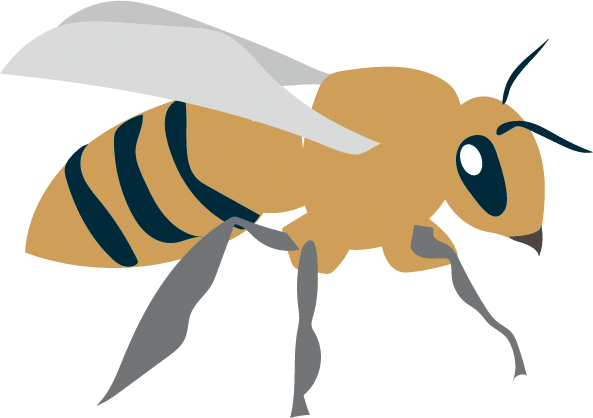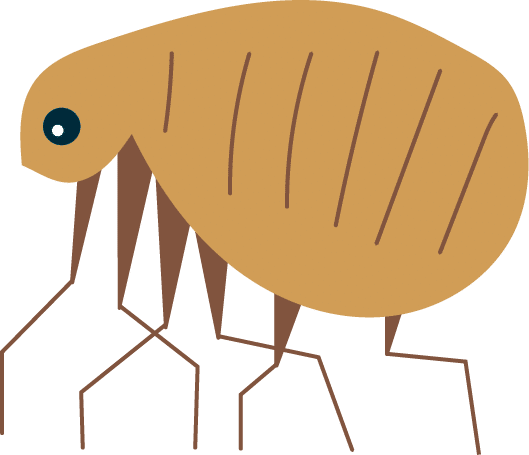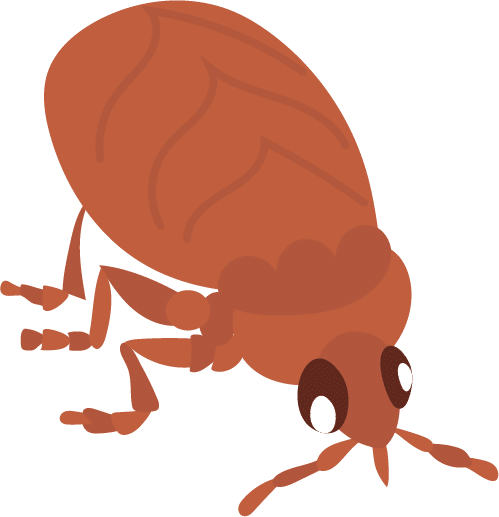There may be times when you find pests in your home. We understand it’s not pleasant. It’s really important that we work together to try and make sure your home is free of infestations. Even the cleanest homes can become host to unwelcome visitors, no matter how careful you are.
We have put together some advice and information on a range of common pests and used the Pied Piper as a resource aid.
Whose responsibility is it?
Dealing with a pest infestation is usually your responsibility as a tenant.
As a landlord, it is our responsibility to deal with any infestation where pests have gained access through a defect in the fabric of the building, or if the infestation is within a communal area or a sheltered or retirement court, where the tenant is unable to take appropriate steps to treat the issue themselves.
If it is your responsibility, but the infestation is so severe that you cannot reasonably be expected to manage the issue yourself, we may assist you and pass on the cost for treatment to you as a rechargeable repair. We will always advise you if this is the case before arranging treatment.
What can you do?
It is important to take preventative action to discourage pests in your home. Ensure your home, including common areas, are kept clean and tidy. To deter pests, it is essential that you:
- Avoid feeding birds around your home
- Clean all surfaces thoroughly to remove crumbs
- Make sure waste bins are covered, emptied and cleaned regularly
- Make sure gaps behind kitchen appliances, such as cookers and fridges, are cleaned regularly
- Do not store food on the floor and keep all food stored in sealed containers
- Make sure any minor leaks in your home are reported and dealt with promptly to ensure that there is no potential water source
- Keep your home free from clutter
- Wash and dry your bed sheets on the hottest temperature you can
- If you buy second-hand furniture or clothing, inspect them carefully before bringing them into your home
- Block up any small gaps that a pest could access. Replace any damaged or poorly fitting finishings and neatly seal any gaps with an expanding foam or a silicone sealant
- If you are a cat or dog owner, regularly treat your pet with a suitable flea treatment. You can ask your vet for more information about this
- Ensure that any pet food is also properly stored in sealed containers and off the ground and that any leftover food is cleared up straight away
Mice and Rats
 Mice and rats can cause damage to your home and furnishings by chewing through electrical wires, increasing the risk of fire and electrocution. They are most active at night which makes it easier to spot signs of a problem rather than the rodent itself.
Mice and rats can cause damage to your home and furnishings by chewing through electrical wires, increasing the risk of fire and electrocution. They are most active at night which makes it easier to spot signs of a problem rather than the rodent itself.
If the issue is inside your home we will send out a pest control contractor to investigate and treat. There may be a recharge for this if the infestation is caused by poor hygiene. If the issue is outside you may be able to keep mice under control using traps or poison which can be bought in most DIY stores. You can contact your local council to find out if they provide a service to remove rats and mice.
Bees and Wasps
 Bees are not pests. Honeybees must not be killed as they are useful pollinators and are protected by law. However, they may be re-homed with a local beekeeper.
Bees are not pests. Honeybees must not be killed as they are useful pollinators and are protected by law. However, they may be re-homed with a local beekeeper.
First, check if what you have are bees or wasps. This may sound rather obvious, but it is an easy mistake to make. Wasps and honeybees are about the same size, but wasps have black and bright yellow stripes. Honeybees are brown and less vibrantly coloured than wasps. Bumblebees are furry. You can find out more about how to tell the difference here. If you are experiencing serious issues with wasps in your home, we will send out our pest control contractor. If the problem is in a shed or outbuilding it will be your responsibility to arrange for treatment.
We will not get rid of bees. If you think you have a honeybee swarm, please contact the Scottish Beekeepers Association which provides help and advice. You can find your local beekeeping association on their website.
Ants
 Treat them using an ant spray or powder which you can purchase in most DIY stores. Treat the nest if you can find it. You may be able to locate it by following the trail of ants. If you can’t reach the nest, treat all entry points to your home (doors, windows and drains). The ants should carry the insecticide back to their nest. Carefully follow the instructions provided with the treatment and be especially careful if there are children and dogs in your home.
Treat them using an ant spray or powder which you can purchase in most DIY stores. Treat the nest if you can find it. You may be able to locate it by following the trail of ants. If you can’t reach the nest, treat all entry points to your home (doors, windows and drains). The ants should carry the insecticide back to their nest. Carefully follow the instructions provided with the treatment and be especially careful if there are children and dogs in your home.
Further guidance can be found here.
Birds
 Most UK birds are protected so it is illegal to remove their eggs and nests or disturb them once they have begun nesting.
Most UK birds are protected so it is illegal to remove their eggs and nests or disturb them once they have begun nesting.
Although they can be noisy, they seldom cause any damage and their nesting period is fairly short.
We advise you to take a note of where the birds have nested and then call us to remove it once they have left the nest.
Squirrels
 Scotland’s native red squirrels are specially protected since their numbers having fallen drastically, mainly due to the rise of the grey squirrel.
Scotland’s native red squirrels are specially protected since their numbers having fallen drastically, mainly due to the rise of the grey squirrel.
Grey squirrels don’t receive any protection and are considered a pest. If you have grey squirrels in your loft space, we can send out a pest control contractor to investigate and treat. For more information or to report a squirrel sighting visit here.
Fleas
 Fleas from pet cats and dogs don’t spread disease but flea bites can be itchy and uncomfortable for you and your pets.
Fleas from pet cats and dogs don’t spread disease but flea bites can be itchy and uncomfortable for you and your pets.
To deal with fleas, treat your pets, bedding, furniture and carpets with flea sprays or powders. If you are unsure of which type to use, you may wish to speak to a vet for advice. To prevent fleas, you can treat your dogs and cats regularly. Again, speak to your vet for advice.
Bedbugs / Dust Mites
 Bedbugs are visible to the naked eye and are around the size of a watermelon seed. They generally don’t live inside the mattress, but on the seams of mattresses, bed slats, frames, bedside cabinets and even the pleats of curtains. The only way these should be tackled by yourself is with a steamer. In most cases, however, a professional treatment is required. DIY chemicals should not be used as you could end up dispersing them and turning it into a far bigger problem.
Bedbugs are visible to the naked eye and are around the size of a watermelon seed. They generally don’t live inside the mattress, but on the seams of mattresses, bed slats, frames, bedside cabinets and even the pleats of curtains. The only way these should be tackled by yourself is with a steamer. In most cases, however, a professional treatment is required. DIY chemicals should not be used as you could end up dispersing them and turning it into a far bigger problem.
Dust mites live in mattresses and bedding. They can make your symptoms worse if you suffer from eczema, asthma or any other breathing problems. Dust mites prefer warm, humid environments. To keep them under control, wash your bedding regularly at 60°C and try to keep your bedroom cool and well ventilated.
Some animals and birds may be protected, such as bats. They should not be removed or killed without you first getting specialist advice on what is the best course of action to take.
Looking after your health and safety
Please try preventative methods first before considering the use of pest control. If you do need to use a product, please consider the following:
- Read the instructions fully before use and only use products for their intended purpose
- Only use domestic products aimed at use in the home
- Don’t use outdoor products inside
- Only use the recommended amount of a product
- Be sure to wear any personal protective equipment (for example, protective gloves) recommended in the instructions, and wash your hands thoroughly after use. Avoid any contact with skin, eyes and clothing
- Keep your children and pets well away from areas where you are using pest control products
- Properly dispose of pest control products in accordance with the instructions
- Deal with any spillages immediately and in accordance with the product instructions
- Keep all products tightly closed, safely and securely stored and well out of the way of children, pets and wildlife
- If you become ill after using the product, follow the instructions on the packet and obtain medical advice immediately. For a pet, call your vet. For wildlife, call the relevant animal charity





